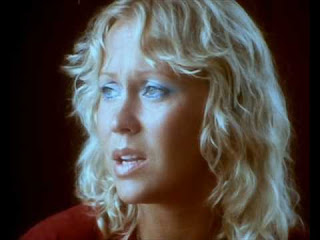ABBA - Enduring & Timeless
ABBA - The Winner Takes It All
Today is the 75th birthday of Björn Kristian Ulvaeus, who is a Swedish producer, songwriter and member of the pop supergroup ABBA. The group's name is an acronym of the first letters of their first names: Agnetha, Björn, Benny and Anni-Frid. They became one of the most commercially successful acts in the history of popular music, topping the charts worldwide from 1974 to 1982. ABBA won the Eurovision Song Contest 1974, giving Sweden its first triumph in the contest. They are the most successful group to have taken part in the competition. ABBA was also one of the first to hire someone to direct a music video, since they made the collective decision to tour and perform much less to avoid a burn-out. This was a powerful move, however, since they got their image into people's homes through music videos more effectively that anyone else up to that point. Their pioneering of music videos was the precursor to all the visual material of Michael Jackson and Madonna to come.
'The Winner Takes It All' was the group's first single after a seven-month hiatus which peaked at No, 1 in several countries, including the UK. Agnetha Fältskog sang the lead and later talked about the song in an interview, saying "It was quite a while afterwards before I realised we made a small masterpiece":
 |
| Agnetha Fältskog in the music video for The Winner Takes It All |
This ballad was written after Björn and Agnetha's divorce, which occurred after eight years of marriage and with the added heartache of it affecting their two children. Eventually Benny and Anni-Frid also divorced, but the group stayed together nevertheless. Ulvaeus commented in an interview, "We wrote some of our best stuff after the divorces. A thing like a divorce can be, for songwriters, a new experience and something to use - the lyrcis...I used to write it, obviously, from my own view-point, but when Agnetha would sing it, it would ring true, I thought".
Fältskog described her experiences in recording and singing the song: "singing it was like playing a part, but I couldn't let my feelings take over". The ballad is incredibly emotional, but not only is this due to the subject matter and the very vulnerable lyrics, but perhaps also to its simplicity. There are essentially two melodic themes that get repeated and there is nothing more to the melody. Andersson stated the following on the song's composition: "I think we've achieved what I'm always aiming for - to try to keep things as simple as possible. I mean, the inner thing in a song should be as simple as possible."
Comments
Post a Comment